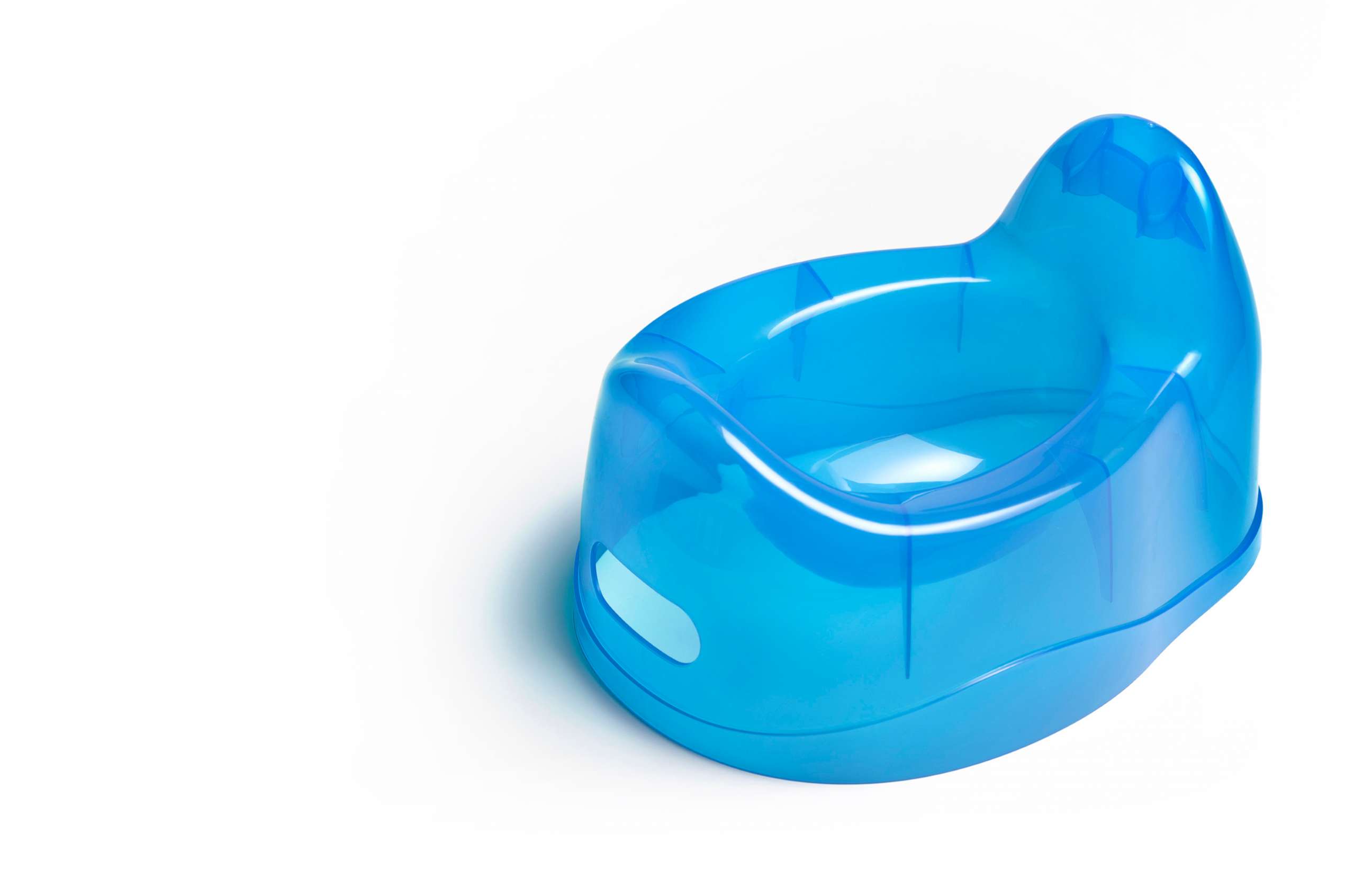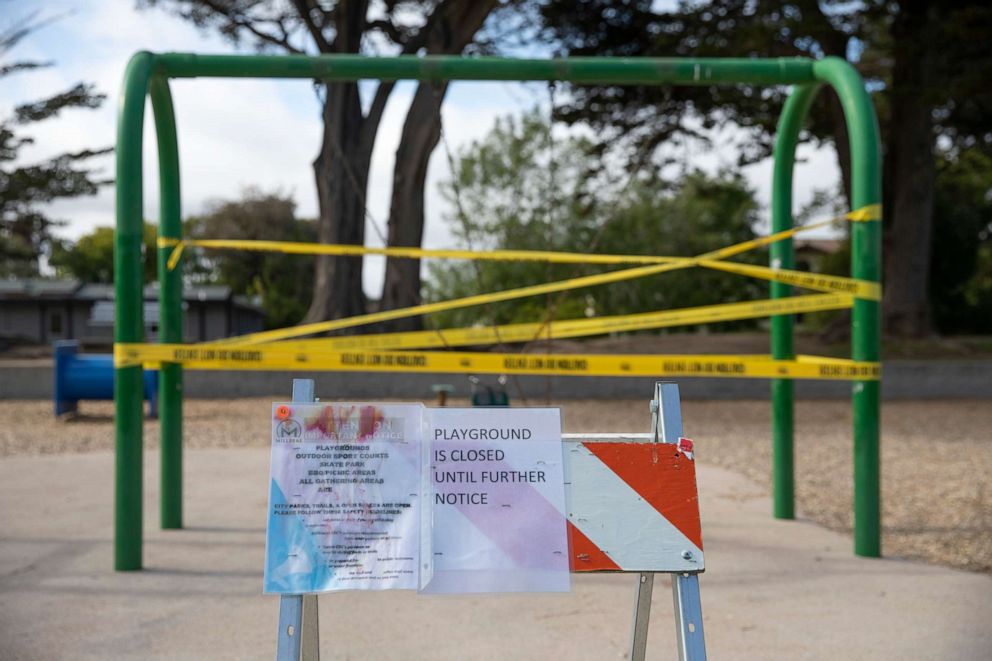Potty training is the trend for parents amid COVID-19 quarantine
"I don't know when I would have started if this didn't happen."
Tiffany Bari knew she wanted to start potty training her son before he turned 3 in May. But between work, his school, Easter celebrations and other weekend plans, she knew it would have been tough.
Once COVID-19 quarantine measures started going in effect, however, the timing was suddenly right. Bari, from New York, started working on the milestone with her son, Joseph, three weeks ago.
"I'm the type of person where I procrastinate," Bari told ABC News. "I don't know when I would have started if this didn't happen."
"It's like there's no excuse to procrastinate because we're not doing anything else," she added.
Bari is not alone. Parents everywhere at home with their toddlers have decided to take advantage of days devoid of school, commutes and weekend plans to start potty training. "Turning lemons into lemonade," sociologist Helana Darwin recently put it on Twitter.
Jamie Glowacki estimates her business has gone up 70% since families have gone into quarantine, the potty training expert told ABC News.
"I'm completely booked," said Glowacki, who offers private consultations as well as online courses.
About 40 consultants who have completed her certification program are booked, too, the Rhode Islander said. Her 2015 book, "Oh Crap! Potty Training," also started flying off virtual shelves; it currently is ranked No. 2 in the baby and toddler parenting category on Amazon.
Michelle D. Swaney, founder of The Potty School in Orange County, California, expects to hear from more clients in the coming weeks, the potty training consultant told ABC News.
"I think we're in the sweet spot where people are just starting," Swaney said. "Then usually they call me about two weeks after they start and they think they should be done but they're not quite done yet. It's the calm before the storm. I know it's going to happen."
Swaney has heard of parents potty training now over concerns about diaper availability amid pandemic hoarding. Financial strain during the economic crisis was another factor.
"People spending $50 to $100 a month are then thinking, 'Oh, I can go to almost nothing,'" Swaney said. "There's just so much change going on with people's finances that they're trying to find ways to save money and be able to do something productive and use their time well while they're at home."

Like accountants, potty training consultants have a busy season. Theirs is between Memorial Day and Labor Day. Parents might want to take advantage of either long weekend to have their child run diaperless throughout the house. They also might have a deadline: the start of preschool in the fall. Summer has other perks: "Do you want to potty train in a snowsuit or a bathing suit?," Glowacki said.
With stay-at-home orders and other restrictions in effect across the country, "this is the longest three-day weekend ever for parents," Swaney said. "I couldn't create a better opportunity for people to have success."
Pediatricians usually bring up potty training at the 2-year checkup, Dr. Kelly Fradin, a pediatrician in New York City, told ABC News. It can be any time after 18 months, but Fradin considers the "sweet spot" between 24 and 28 months.
"I think most kids are physiologically ready to go a few hours in between going to the bathroom at that point," Fradin said. "It's a nice age because it's before some of the more willful, defiant behavior starts."
The approach will vary by family, but generally, Fradin recommends the three-day method popularized in Glowacki's book: A child starts bare-bottomed when awake for several days before progressing to various stages like wearing underwear and going without any prompt. But a slower approach can also work.
"Just putting out the potty and offering the potty a few times a day can be a slower but less stressful way to transition into potty training " before starting something like the three-day method, Fradin said.
While convenient, potty training during a quarantine does pose some challenges. For one, potty training already can be stressful for both children and adults, and the added anxiety of living during a global pandemic may hinder a child's success.
"So delighted we decided to throw ‘potty training 2 toddlers’ into the mix this week. Really spiced things up," the actor Chris O'Dowd deadpanned on Twitter last month.
"To pick a time when there's global peak anxiety and uncertainty is an interesting time to potty train," Glowacki said. "That can contribute to a lot of anxiety in a child and can kind of make things wonky in those first days. Toddlers don't like change. With such a big transition you have to have real emotional swaddling."
One of the stages of potty training is going at places that aren't your home, which isn't really an option, either. Neither is what some consider the true test of success -- leaving your house for a long period. A simple trip to the playground may not even be an option.

"I think of the first trip in a long car ride or airplane ride as being one of the big challenges for potty training -- having times when you're away from the toilet," Fradin said. "Most people are staying home, hopefully, and they're not really having those challenges. So they may not really test the potty training until things get back to normal."
To that end, Glowacki recommends manufacturing places to be, like a car ride to the ocean.
Two weeks into their potty-training journey, Jennifer Plowman, a mom of two in Keosauqua, Iowa, went on a Sunday drive with her family to see how her 2-year-old daughter, Ella, fared.
"We were gone probably 40 minutes, which seems like a long time when you're potty training," Plowman said. "We live pretty rural, so we just drove around and came back and she didn't have an accident. I was shocked. That's pretty good."
Despite its challenges, potty training amid a global pandemic may provide a sense of routine.
Dallas-based freelance writer Roberto José Andrade Ranco writes in Texas Monthly this month, "The thing about potty training during quarantine is that no matter how well or terribly it goes, it adds structure to hours that feel like days and days that stretch on like weeks."
Surrounded by "what seems like a constant stream of bad news," he writes, potty training his nearly 3-year-old daughter is a "welcome distraction." Progress brings moments of joy.
Whenever someone starts potty training, Swaney recommends having a support person -- preferably out of the house -- to whom you can vent. "[Have] somebody just that they can check in with at the end of the day and say, 'it was a hard day,' or whatever encouragement they need, to have that away from the person they've been potty training with all day long."
Playdates and parent meetups usually offer the opportunity to swap war stories. In their stead, online groups can provide support. Bari and Plowman both have found Facebook groups on potty training helpful.
"It's good to see parents who have kids that are close to my son's age or even older and have different issues or problems I can relate to," Bari said.
"Every kid is so different. It's just nice to be able to go and see what's worked for other people and try it if you hit a bump in the road," said Plowman. When trying to figure out a reward system for using the potty, she got a few ideas from the group and decided on M&Ms.
For some parents, now might not be the best time to start potty training -- and that's OK, Fradin said.
"When you have a lot on your plate as a parent, whether it's dealing with changes in your work, or in your plans, your child care -- it is another thing to take on," she said. "While it might be convenient while you're home, I think a parent's sanity is also very important to prioritize. I wouldn't pressure people to feel like they have to do it."




